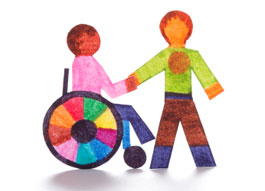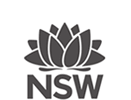Service Listing » Healthcare & Disability Support
EnableNSW
-
EnableNSW provides assistive technology and related services to people in NSW with specific, short term or ongoing health needs to assist them to live safely at home.

Quick Links
Apply to EnableNSW for Assistance
-
New Applications
-
Apply to EnableNSW for Assistance
Apply for assistance with procuring disability support equipment.
-
Information for Prescribers
Further information for prescribers wanting to prescribe aids & equipment and services provided by EnableNSW
Look up a Record-
List of EnableNSW Accredited Amputee Clinics
Accredited clinics in NSW that provide services and care to amputees.
-
List of Prosthetic Limb Manufacturers in NSW
Accredited commercial limb manufacturers and public prosthetic limb services in NSW.
Information And Links-
All about EnableNSW
EnableNSW Information & Services
-
EnableNSW Forms & Guidelines
Forms and guidelines for consumers and prescribers
-
Categories of Assistive Technology
Types of assistive technology devices provided by EnableNSW
-
Prosthetic Limb Service
Information and & Services related to prosthetic limbs
-
Home Respiratory Program
Support for people with respiratory conditions.
-
Away From Home Haemodialysis (AFHH) Program
Program to provide patients with better access to haemodialysis services when travelling away from home.
-
Apply to EnableNSW for Assistance
-
Consumer Eligibility
EnableNSW provides equipment, and in some cases attendant care, to assist eligible residents of NSW with a permanent or long-term disability by providing assistive technology in the areas of :
- mobility
- self care
- communication, and
- respiratory support
Consumers can apply online for eligibility or fill out a form and mail it to EnableNSW. An Equipment Request Form, which describes the individual's functional or clinical needs for the equipment, is then required to be completed by an eligible prescriber. Completed applications and requests will be assessed for eligibility and applicants will be notified in writing of the outcome and expected timeframe for funding.Disability Support ProgramsDisability Support Programs administered by EnableNSW include:
- Aids and Equipment Program (formerly known as PADP)
- Specialised Equipment Essential for Discharge (SEED)
- Young People in Residential Aged Care (YPIRAC)
- Prosthetic Limb Service (formerly known as ALS)
- Home Respiratory Program (HRP)PrescribersEnableNSW provides clinical advice and guidelines on what can be provided by us for your consumers.
-
 Locked Bag 5270 Parramatta NSW 2124
Locked Bag 5270 Parramatta NSW 2124
Phone: 1 800 362 253
Private Health Facilities
-
NSW Health regulates and licences privately owned and operated health facilities across the state. This includes private health facilities, day procedure centres, psychiatric class hospitals and businesses supplying Semen.

-
New Applications
-
Apply for a Private Hospital Licence
Licence Application forms for Private Health Facilities
-
Apply for Authorisation to Carry on a Business of Supplying Semen
To conduct a Business Supplying Semen in NSW Download an application
Renewals-
Renew your Private Hospital Licence Online
Pay and Renew your Private Hospital or Day Procedure Centre Licence Online.
Look up a Record-
Private Hospitals - Overnight facilities
Current list and contact details of licenced private hospitals in NSW with overnight facilities
-
Private Hospitals - Day-only facilities
Current list and contact details of licenced day-procedure centres in NSW
-
Drugs of Addiction facilities in NSW
Current list and contact details of Drugs of Addiction facilities in NSW.
Partner ServicesInformation And Links-
All about Private Health Facilities
Private Health Facilities - Information & Services
-
Apply for a Private Hospital Licence
-
Day Procedure Centre
Day procedure centres (patients admitted and discharged on the same day) must meet the regulatory standards applicable to the prescribed class of the facility and must be approved to admit child patients under 14 years.
There are currently six prescribed classes of day procedure centres:
1) Cardiac Catheterisation (a service provided for cardiac catheterisation for diagnostic or therapeutic purposes)
2) Child Patients (a service provided for the care and treatment of persons under 14 years of age)
3) Cytotoxic (that is, a day procedure centre used for the purpose of providing treatment that involves prolonged intravenous infusion of a single cytotoxic agent or sequential intravenous infusion of more than one cytotoxic agent)
4) Dialysis (that is, a day procedure centre used for the purpose of providing treatment that involves dialysis, haemofiltration or haemoperfusion)
5) Endoscopic (that is, a day procedure centre used for the purpose of providing endoscopic treatment that involves the administration of a general anaesthetic or intravenous sedative otherwise than for the purpose of simple sedation)
6) Family care (that is, a day procedure centre used for treatment that involves the multidisciplinary care and treatment of children who are less than 5 years of age for early childhood conditions relating to developmental, behavioural, feeding or sleeping
Surgical (that is, a day procedure centre used for the purpose of providing surgical treatment that involves the administration of a general, spinal, epidural or major regional block anaesthetic or intravenous sedative otherwise than for the purpose of siPrivate HospitalPrivate hospitals (patients accommodated overnight) must meet all general licensing standards and any associated licensing standards that apply to each class of facility and specialist service and must have approval to admit child patients (under 14 years) and conduct a dispensary.
Prescribed classes of Private Hospitals
1) General (that is a private hospital used for a purpose other than the purposes of a surgical, obstetric, rehabilitation or psychiatric class hospital)
2) Surgical (that is, a private hospital used for the purpose of conducting surgical operations or endoscopic procedures, other than those that would normally be conducted by a medical practitioner in his or her consulting rooms)
3) Obstetric (that is, a private hospital used for the purpose of providing obstetric care)
4) Psychiatric (that is, a private hospital used for the purpose of providing psychiatric care)
5) Rehabilitation (that is, a private hospital used for the purpose of providing long-term or specialised physical rehabilitation)
6) Specialised Hospital Services
7) Cardiac Catherisation (service provided for cardiac catheterisation for diagnostic or therapeutic purposes)
8) Emergency Services (a service provided for persons injured in accidents or suffering medical and other emergencies)
9) Intensive Care Levels 1 & 2 (a service provided for life support, monitoring and care for Patients suffering from life threatening conditions)
10) Dialysis, haemofiltration or haemoperfusion (a service providing treatment that involves dialysis haemofiltration or haemoperfusion)
11) Neonatal Intensive Care (a service provided for life support, monitoring and care for newly born children suffering from life threatening prematurity, illness or disability at birth)
12) Open Heart Surgery (a service provided for any surgical procedure requiring the use of a heart lung machine for circulatory support during procedures within or on the heart)
Others
13) Child Patients (a service provided for the care and treatment of persons under 14 years of age)
14) Dispensary (a service provided for the dispensation of medications to inpatients)
-
 Locked Mail Bag 961
Locked Mail Bag 961
North Sydney NSW 2059
Travel Assistance for Isolated Patients (IPTAAS)
-
To provide you with a smoother claiming experience, we are making some exciting changes to the IPTAAS online system.

-
New Applications
-
Register for Assistance with IPTAAS
Register your details for claiming an IPTAAS subsidy
-
Lodge an IPTAAS Travel Claim
Submit your claim for assistance with travel and accommodation
-
Lodge an Advance Payment Claim
Apply for assistance with travel costs. Claimants who wish to apply for an Advance Payment must be a Pension or Health Care Card holder to be eligible.
Look up a RecordInformation And Links-
All about IPTAAS
IPTAAS Information and Services
-
IPTAAS Doctor Referral Form
IPTAAS registration form for treating specialist
- IPTAAS Frequently Asked Questions
-
Register for Assistance with IPTAAS
-
IPTAAS Registration
IPTAAS provides a subsidy to help with travel and accommodation costs for people (and eligible escorts) needing to travel long distances to access specialist medical treatment not available locally.
Patients can register online or fill out a form and email or mail it to EnableNSW. A claim request detailing the actual travel costs incurred is required for the subsidy to be calculated and processed. The subsidy will then be paid directly into the patient’s nominated bank account.IPTAAS Travel ClaimFor the patient subsidy to be processed, the patient needs to ensure that their referring GP and treating specialist have completed travel and accommodation authorisation forms and copies of receipts are emailed or posted to EnableNSW.
For patients who do not have a pensioner, veteran, war widow or health care card, there is a $40 contribution for each return trip. This is capped once $1000 in subsidies is reached within a one year period.IPTAAS PractitionersIPTAAS provides a subsidy for your patients (and eligible escorts) for travel and accommodation where there is a need to travel long distances to access specialist treatment not available locally.
Authorisation forms for both the GP and the Specialist are available to provide to your patients. You can fill in the form online and email to IPTAAS or fill in and print and give to your patient to justify their claim
-
 Locked Bag 5270 Parramatta NSW 2124
Locked Bag 5270 Parramatta NSW 2124
Phone: 1 800 478 227
Category Index
Most Popular
Apply for assistance with procuring disability support equipment.
Information for PrescribersFurther information for prescribers wanting to prescribe aids & equipment and services provided by EnableNSW
Register for Assistance with IPTAASRegister your details for claiming an IPTAAS subsidy
Lodge an IPTAAS Travel ClaimSubmit your claim for assistance with travel and accommodation
Renew your Private Hospital Licence OnlinePay and Renew your Private Hospital or Day Procedure Centre Licence Online.
Useful Links
EnableNSW Information & Services
EnableNSW Forms & GuidelinesForms and guidelines for consumers and prescribers
Prosthetic Limb ServiceInformation and & Services related to prosthetic limbs
Home Respiratory ProgramSupport for people with respiratory conditions.
Away From Home Haemodialysis (AFHH) ProgramProgram to provide patients with better access to haemodialysis services when travelling away from home.
List of EnableNSW Accredited Amputee ClinicsAccredited clinics in NSW that provide services and care to amputees.
List of Prosthetic Limb Manufacturers in NSWAccredited commercial limb manufacturers and public prosthetic limb services in NSW.
All about IPTAASIPTAAS Information and Services
IPTAAS Doctor Referral FormIPTAAS registration form for treating specialist
All about Private Health FacilitiesPrivate Health Facilities - Information & Services
Private Hospitals - Overnight facilitiesCurrent list and contact details of licenced private hospitals in NSW with overnight facilities
Private Hospitals - Day-only facilitiesCurrent list and contact details of licenced day-procedure centres in NSW
Drugs of Addiction facilities in NSWCurrent list and contact details of Drugs of Addiction facilities in NSW.
Sign-in to access the Private Health portal

